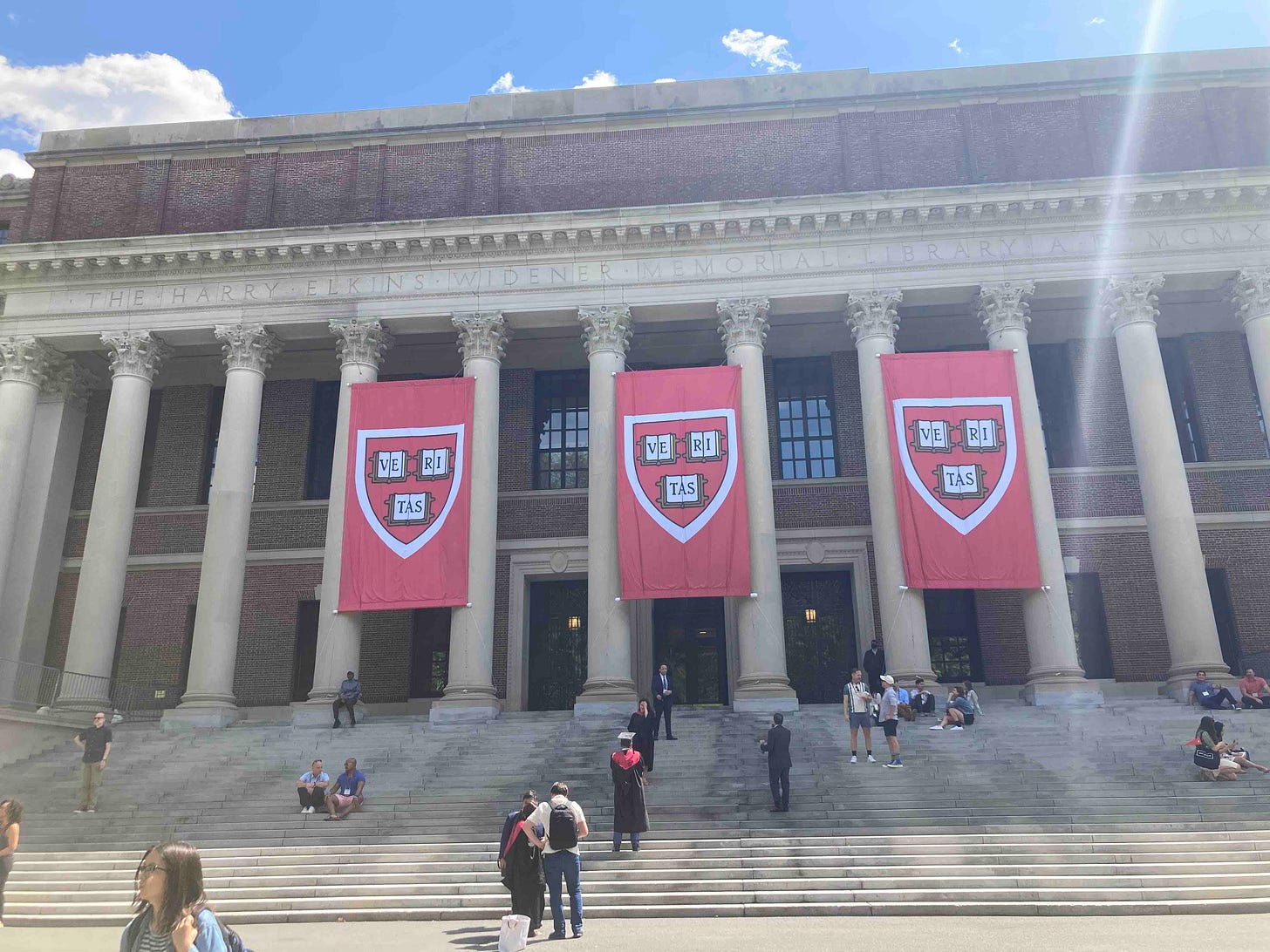Harvard Donors Fueled Alvin Bragg’s Election
D.A. who won Trump’s conviction was backed by three Harvard board members
President Trump and his allies have been describing the district attorney of New York County, Alvin Bragg, as Soros-backed.
They might more accurately call him Harvard-backed. A new analysis by The Editors finds that at least ten percent of Bragg’s campaign cash had Harvard connections, including donations from at least three current members of Harvard’s 12-person governing board, the Harvard Corporation.
Harvard Corporation member Theodore V. Wells Jr. a lawyer at Paul, Weiss, and his wife Nina, gave $7,700 to Bragg’s campaign, state records show.
Harvard Corporation member Timothy Barakett, who is the university’s treasurer, and his wife Michele gave $16,000 to Bragg’s campaign, state records show.
Harvard Corporation member Kenneth Chenault gave $5,000 to Bragg’s campaign, state records show.
Other significant Bragg donors with Harvard ties include Doug Kaden, who gave $8,500; Jonathan Moses, a lawyer at Wachtell, Lipton, who gave at least $8,850; Ross Garon, who gave $54,000; Greg Belinfante, who gave $70,400; Richard Cashin, who gave $70,400; Nnamdi Orakwue, who gave $50,500; K. Don Cornwell, who gave $27,000; and Lisa Minsky-Primus and Yaron Minsky, who gave $95,580.
Even the Soros who makes Bragg “Soros-funded,” Jonathan Soros, who with his wife Jennifer Allan Soros gave Bragg’s campaign at least $20,000, went to Harvard Law School.
All told, that’s at least $433,930 in Harvard-linked donations, more than ten percent of Bragg’s total campaign haul of about $4 million.
Not all of Bragg’s largest donors went to Harvard. He racked up $228,856 from two Brown graduates, Jeannie Blaustein and Peter Bokor. (The Blaustein fortune originally stems from the American Oil Company, or Amoco.) Jonathan and Elizabeth Lewinsohn, who have degrees from Yale, gave $79,829.
Bragg himself went to Harvard College (where he was quite well liked) and Harvard Law School.
Many of these campaign contributions were made before it was clear that Bragg was going to criminally charge Trump. Some of them may be from New Yorkers who want a criminal justice system that is both nondiscriminatory and tough on crime, or who value Bragg’s character and bridge-building ability. It’s natural for a candidate for office to reach out to friends for fundraising, and lots of people have friends they made in college and graduate school.
In retrospect, though, given how much heat Harvard and other similar universities are facing from Republicans in Congress and from a prospective second Trump administration for both ideological imbalance and the outbreaks of antisemitism on their campuses, these donations may be seen in a different light. The news that the county prosecutor who brought and won a felony hush-money case against Trump got elected himself with the help of piles of Harvard-linked money, including from three members of a governing board led by a former Obama-Biden administration official, Penny Pritzker, is likely only further to fuel perceptions that Harvard is taking sides in partisan politics rather than sticking to its research and teaching mission.
There’s a national divide over whether Bragg is heroically saving America from a lawless would-be dictator or whether he’s criminalizing political differences and targeting a Republican in an effort to prevent the American people from democratically choosing. It sure looks like Harvard is choosing a side in that one.
You won’t read about this in the New York Times, even though Bragg is based in New York and the Times has vast resources. Maybe it’s too newsworthy for the Times? You won’t read about it in the Harvard Crimson, either—they are largely off for the summer, making time only intermittently to publish opinion pieces falsely demonizing Israel as an apartheid state. That’s fine: it provides an opening for The Editors to bring you the news that the others won’t.
Thank you: Not a single member of the Harvard Corporation has put a four or five-figure contribution into The Editors. We are independent and reader-supported. If you appreciate our fearless coverage of higher education and its impact on American politics or of New York campaign finance as it affects national politics, please become a paying subscriber. Even Harvard’s own Professor James Hankins describes us as “well informed.”




Did Harvard solicit donations from liberal Democrats and not from lowly Republicans? I think that the article's analysis is incomplete.